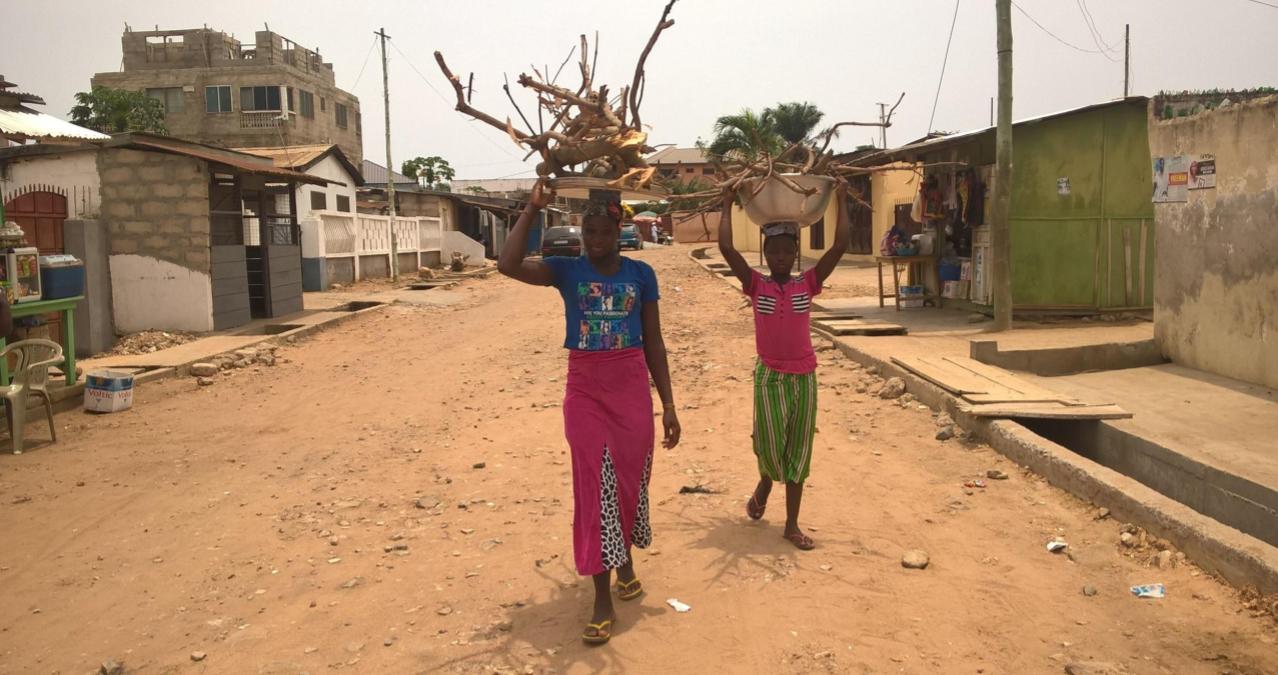Health research needs to include partnerships across different sectors and involve diverse stakeholders. Only then will it have real impact.…
In Ghana, a woman’s day starts early and ends late. She takes care of the entire household, including cooking for everyone. Children will often crowd around her while she prepares the meal. In rural areas, polluting fuels such as charcoal, firewood and crop residue are mostly burned in traditional, inefficient cook-stoves, made out of stone and mud. Women and children inhale this smoke in the kitchen and sometimes burn themselves accidentally. This is an inefficient way of cooking that can cause serious health problems. But it is what 90% of households in rural Ghana go through daily.
Even in urban Ghana, there is a sizeable number of people who still use charcoal and firewood for cooking. According to the World Health Organization (WHO), about 38% of the global population and almost 50% of the people in developing countries rely on polluting and inefficient energy sources for cooking. To do something about this situation, the United Nations 2030 Agenda set a historic first-ever universal energy goal. Sustainable Development Goal 7 aims to “ensure access to affordable, reliable, sustainable and modern energy for all”. Ghana is a signatory of this Agenda, and the government has a social obligation to improve access and affordability to modern energy services. It is supposed to provide it to all, irrespective of location, gender, and economic status.
At ISSER – University of Ghana, we wanted to know what rural women in Ghana say about the conditions under which they cook. Two of our researchers and a community representative conducted four Focus Group Discussions (FGD) with women across different regions. It is part of Southern Voice’s “State of the SDGs” initiative.
What the women told us often resembled the story of Fatima, age 30. She recounted:
“I was severely sick. It started with some kind of heat in my body. I thought it was just one of those things, but my head continued to ache me, and so I finally went to the hospital for a checkup. The first thing the doctor asked was if I cook and stay with huge fire for long. I said yes, and the doctor explained to me that I was sick because I always stay by the firewood”.
Our quantitative analysis from our LEAP modelling supports what Fatima told us. It showed that pollutants from household energy use, especially from cooking fuels, are responsible for some of the premature deaths that occur in the country. In 2018, the air polluter PM 2.5 (particulate matter with a diameter of less than 2.5 micrometres, which is about 3% the diameter of a human hair), caused about 11,500 deaths in Ghana. These deaths are projected to grow in the near feature, to about 13,820 deaths. The elderly and children under five years old are the most vulnerable groups affected by the use of household energy. Lower respiratory infections, stroke and ischemic heart disease, are significant illnesses associated with pollution from household fuel use. Women are particularly affected by current patterns of household energy. They also spend a considerable amount of time gathering firewood, time that could be used for other productive activities.
Rural greenhouse gases
The results revealed that across the urban-rural divide, rural areas emit more greenhouse gases (GHGs) compared to urban households. That is because 35% of households in urban areas use clean fuels, such as liquefied petroleum gas (LPG) and gas/electric stoves. GHG emissions are projected to increase from 11.3 million metric tons of CO2 equivalent in rural areas in Ghana in 2010 to 13.3 million metric tons of CO2 equivalent in 2030.
If the same pace of implementation and enforcement of household polluting fuels continues until 2030, Ghana will be contributing to the global temperature rise, no matter how negligible these increases might be. This will be in breach with the signed Paris Agreement in which all nations agreed to keep global temperature rise below 2 C°. Ghana would also not achieve SDG 13, which calls to combat climate change and its impact. The only way to escape these health hazards is the use of clean energy sources.
About “State of the SDGs”
The Southern Voice “State of the SDGs” (SVSS) initiative provides evidence-based analysis and recommendations to improve the delivery of the Sustainable Development Goals and revitalise the global partnership for sustainable development. One of the main outputs of the SVSS initiative explores the national and global causes of exclusion concerning access to energy (SDG 7), quality education (SDG 4), and/or decent and productive work (SDG8).
Southern Voice is producing six studies across Africa, Asia and Latin America Within this framework. With the inputs from different country studies, a group of experts from the Global South will prepare a global synthesis report with a particular focus on informing the international development community


